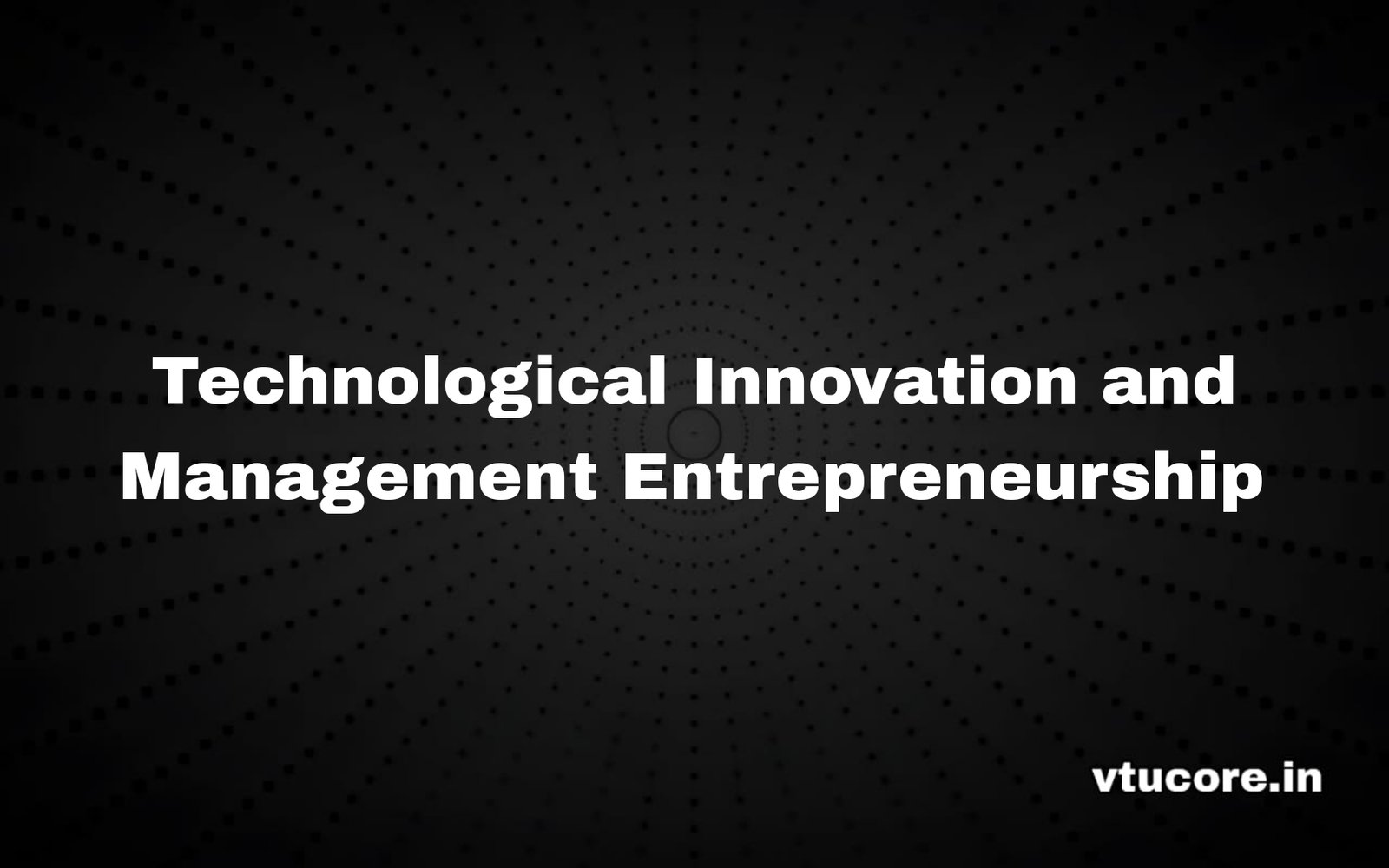Technological Innovation and Management Entrepreneurship BEC501
Course Code: BEC501
Credits: 03
CIE Marks: 50
SEE Marks: 50
Total Marks: 100
Exam Hours: 03
Total Hours of Pedagogy: 40H
Teaching Hours/Weeks: [L:T:P:S] 3:0:0:0
Management: Nature and Functions of Management – Importance, Definition,
Management Functions, Levels of Management, Roles of Manager, Managerial Skills,
Management & Administration, Management as a Science, Art & Profession.
Planning: Planning-Nature, Importance, Types, Steps and Limitations of Planning;
Decision Making – Meaning, Types and Steps in Decision Making
Organizing and Staffing: Organization-Meaning, Characteristics, Process of
Organizing, Principles of Organizing, Span of Management (meaning and importance
only), Departmentalization, Committees–Meaning, Types of Committees;
Centralization Vs Decentralization of Authority and Responsibility; Staffing-Need
and Importance, Recruitment and Selection Process.
Directing and Controlling: Meaning and Requirements of Effective Direction,
Giving Orders; Motivation-Nature of Motivation, Motivation Theories (Maslow’s
Need-Hierarchy Theory and Herzberg’s Two Factor Theory); Communication –
Meaning, Importance and Purposes of Communication; Leadership-Meaning,
Characteristics, Behavioural Approach of Leadership; Coordination-Meaning, Types,
Techniques of Coordination; Controlling – Meaning, Need for Control System,
Benefits of Control, Essentials of Effective Control System, Steps in Control Process.
Social Responsibilities of Business: Meaning of Social Responsibility, Social
Responsibilities of Business towards Different Groups, Social Audit, Business Ethics
and Corporate Governance.
Entrepreneurship: Definition of Entrepreneur, Importance of Entrepreneurship,
concepts of Entrepreneurship, Characteristics of successful Entrepreneur,
Classification of Entrepreneurs, Myths of Entrepreneurship, Entrepreneurial
Development models, Entrepreneurial development cycle, Problems faced by
Entrepreneurs and capacity building for Entrepreneurship.
Modern Small Business Enterprises: Role of Small Scale Industries, Impact of
Globalization and WTO on SSIs, Concepts and definitions of SSI Enterprises,
Government policy and development of the Small Scale sector in India, Growth and
Performance of Small Scale Industries in India, Sickness in SSI sector, Problems for
Small Scale Industries, Ancillary Industry and Tiny Industry (Definition only).
Idea Generation and Feasibility Analysis– Idea Generation; Creativity and
Innovation; Identification of Business Opportunities; Market Entry Strategies;
Marketing Feasibility; Financial Feasibilities; Political Feasibilities; Economic
Feasibility; Social and Legal Feasibilities; Technical Feasibilities; Managerial
Feasibility, Location and Other Utilities Feasibilities.
Business model – Meaning, designing, analyzing and improvising; Business Plan –
Meaning, Scope and Need; Financial, Marketing, Human Resource and
Production/Service Plan; Business plan Formats; Project report preparation and
presentation; Why some Business Plan fails?
Financing and How to start a Business? Financial opportunity identification;
Banking sources; Nonbanking Institutions and Agencies; Venture Capital – Meaning
and Role in Entrepreneurship; Government Schemes for funding business; Pre launch,
Launch and Post launch requirements; Procedure for getting License and Registration;
Challenges and Difficulties in Starting an Enterprise.
Project Design and Network Analysis: Introduction, Importance of Network
Analysis, Origin of PERT and CPM, Network, Network Techniques, Need for
Network Techniques, Steps in PERT, CPM, Advantages, Limitations and
Differences.

